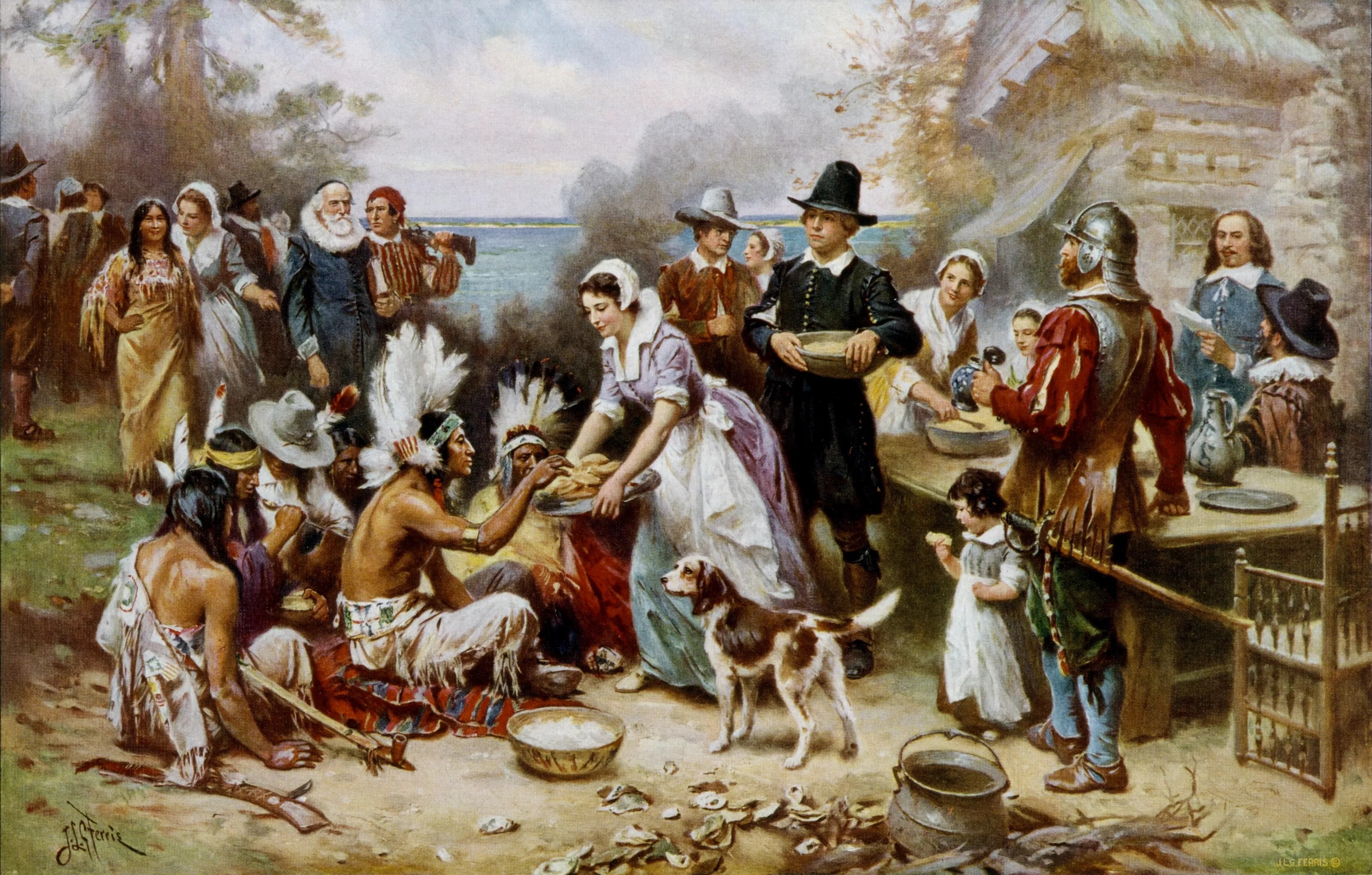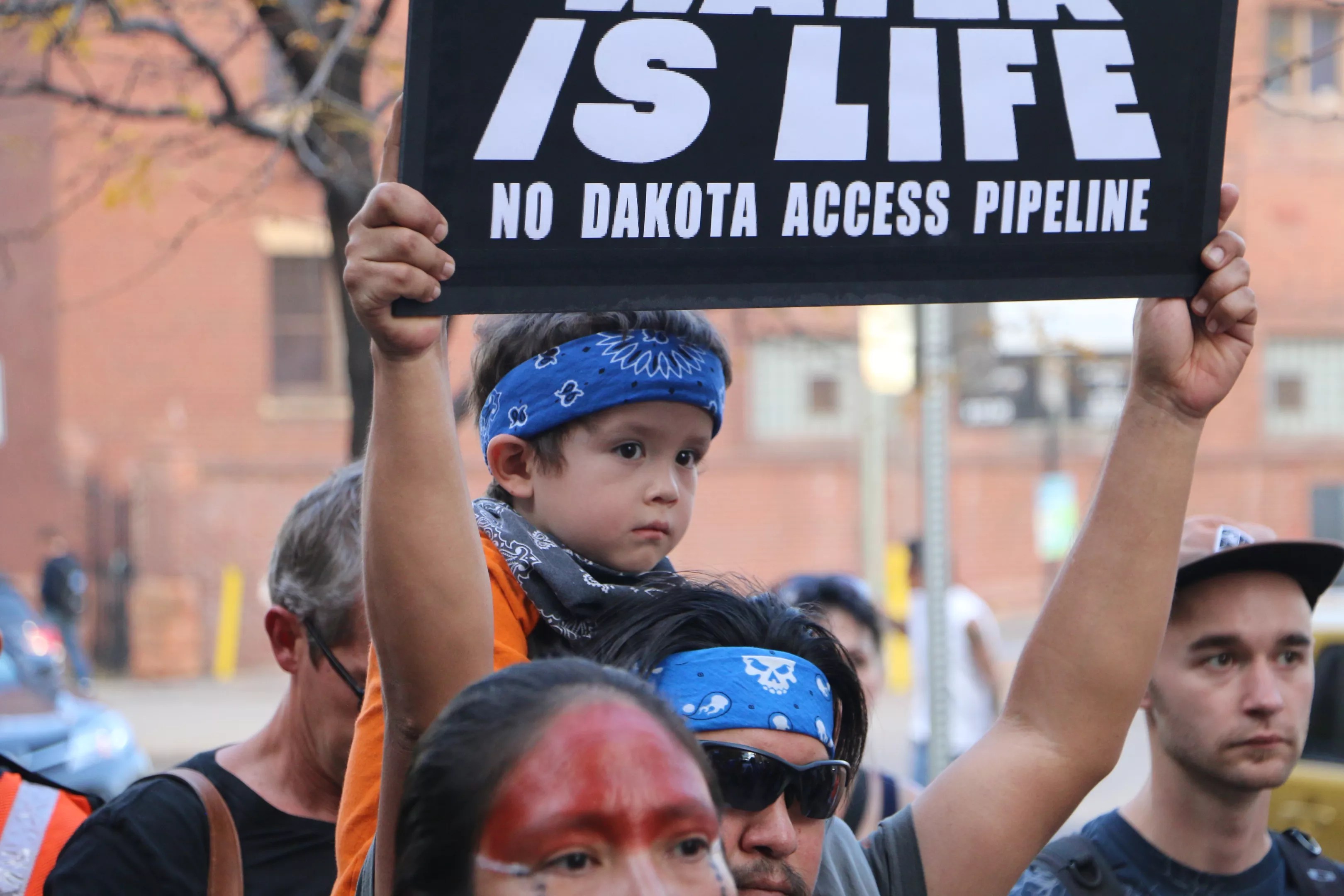
U.S. Library of Congress

Audio By Carbonatix
In grade school, Thanksgiving meant gluing paper feathers to a headband and listening to the legend of Plymouth Rock: pilgrims, Indians, peace and maize. But in 2018, it can be hard to celebrate the holiday without confronting the harsh realities of history: The U.S. was not a country developed through diplomacy between settlers and natives; the land was conquered with muskets and measles.
As a first course to whet the appetite for discussion, the University of Colorado Boulder’s Center for Communication and Democratic Engagement releases an annual Thanksgiving Toolkit.
“I think it’s an easy story to tell about the U.S. nation state. It’s convenient and collaborative to think about the U.S. nation as one that was constructed and built around people sharing and that trope of breaking bread,” says Tiara Na’puti, the CDE executive committee member who updated the kit for 2018. “That story can be challenged while also thinking about the best of Thanksgiving.”

A march through downtown Denver on October 29, 2016, in solidarity with the Standing Rock Sioux tribe.
Kyle Harris
Developed by associate professor Phaedra Pezzullo in 2016, the Thanksgiving Toolkit was originally created as a collaborative project to support the Water Is Life school on the Standing Rock Indian Reservation in South Dakota. Members of the Standing Rock Sioux tribe had reached out to the world for help not just in stopping the Dakota Access Pipeline, but also in spreading their message of tribal sovereignty and environmental justice.
This year, Na’puti added to the toolkit with projects developed by a handful of seniors in her seminar course for communications majors. One student created a pamphlet on the land-acknowledgment work of the Bears Ears Inter-tribal Coalition, with members from the Hopi, Navajo, Ute Mountain Ute and Pueblo of Zuni tribes. Other students looked at native representation in school and professional mascots.
Though they offer the initial steps to engage discussion, these resources are not meant to provide complete answers or mandate any specific solution. “This is part of the conversation and part of the action of knowing that we are not necessarily able to go back and change the course of history,” explains Na’puti. “But we can do something moving forward, and thinking that is also one way that we can generally rethink what we know about American history to have a better American future.”
Facebook analytics indicate CDE’s 2018 toolkit received more than 3,000 interactions in its first week -including a story in the Leadership Institute-funded conservative publication Campus Reform, paired with a very instructive illustration.
CDE also received feedback from parents who embraced the resources.
“They are all great tools to open the conversation with our kids about Native Americans and indigenous peoples,” says Natisha Acosta, the mother of a six-year-old. “This time of year, there are an abundance of less-than-accurate stories of the history behind Thanksgiving from the media, school and friends. It’s refreshing to find all of these tools in one place.”
As the toolkit continues to grow, Na’puti wants to expand the conversation so that indigenous rights aren’t tagged as a seasonal consideration. “I think the spirit and the goal of these materials is to get people to have conversations beyond a single holiday or even a month of celebration of Native American history,” she concludes.